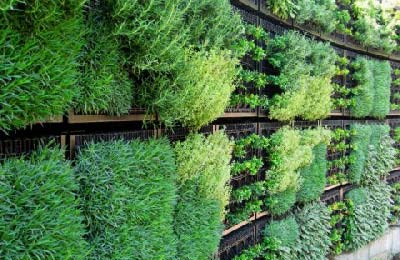Six Modules
CC4ES categorizes the complexity of sustainability into Six Interconnected Modules. Each of the CC4ES Modules explores how our actions impact the environment. Long-term systemic sustainability is only possible in a society that champions racial justice and equity. The Environmental Justice & Diversity module is the key as success can only be achieved through individual perceptional change and it underpins all other modules.

We Are All Interconnected
Social and environmental justice intersect. There is a longstanding history of racial discrimination with respect to environmental justice. Environmental justice is the right of every citizen to adequate protection from environmental hazard. This right entitles equal access to environmental literacy, and equal benefits from governmental clean-up programs. Communities of color and/or low income are more likely to have chemical plants. hazardous waste facilities, sanitary landfills, sewage treatment plants, and incinerators within their neighborhood. We must openly discuss how race and socioeconomic class impact environmental equity in order to tackle environmental challenges.
Learn More
Environmental Health & Our Well-Being
This module provides environmental literacy resources to help us adopt our own sustainable activities. We will explore how each of us is interconnected with other species and non-living matter in the environment. Realize that our daily actions impact our surrounding environment, and in effect cascades into sustainability of the whole ecosystem. Supporting a sustainable ecosystem will ensure our well-being.
Learn More
Sustainable Lifestyle
Food systems are the basis of building the foundation of local, regional, national and global economies. In order to achieve a sustainable food system, we need to understand the complexities involved. Food's journey from the farm to our table is anything but simple. This module explores how to grow food sustainably, reduce food waste, and create/support sustainable food businesses.
Learn More
Mimic Nature
Most of us are familiar with the term renewable energy, such as solar and wind energy. We are now going to focus on regenerative technology. Living things in nature regenerate — regrow themselves. Regenerative approaches work by mimicking nature. When looking at regenerative approaches, we view a broader context which encompasses checks and balances that affect the whole ecosystem's social, economic and environmental sustainability. This includes incorporating sustainable designs for gardening/farming, design architecture and landscape, transportation, and more.
Learn More
Green on a Larger Scale
Sustainability starts at the individual level – everything that each of us contributes makes a difference. We must broaden the effort to include each workplace/business. Scaling up does not need to be expensive, small efforts at work can make a significant impact. With a small investment, businesses can use recycle bins, energy efficient lighting, and implement water conservation techniques. Decreasing waste can have cost savings, consider repairing and sharing tools and equipment. Sustainable business practice invests locally and creates resilient communities. This module showcases local and regional businesses practicing sustainability.
Learn More
Invest Locally to Build a Resilient Community
This is our only planet, we need to protect it. This protection starts locally. Businesses need to invest social capital into the local community. This entails building relationships, supporting local initiatives and developing trust. The community reciprocates by supporting the businesses, a positive feedback loop that creates a resilient community.
Learn MoreTrees are a vital part of our world and they are essential for our survival.
Learn More
Organizations that CC4ES frequently collaborates with
for environmental
sustainability and justice.
